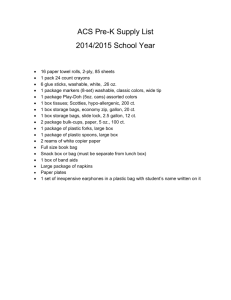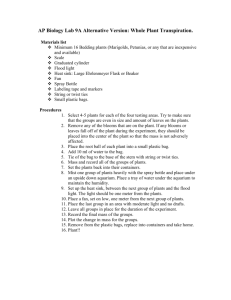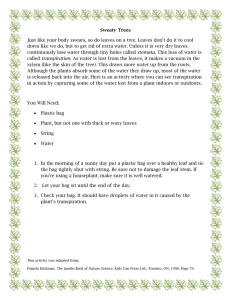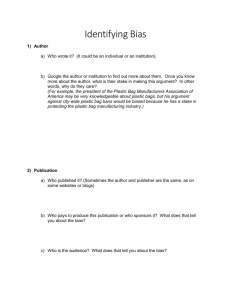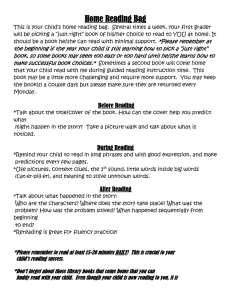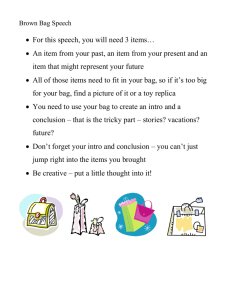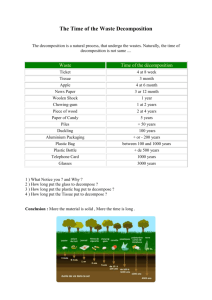8
advertisement
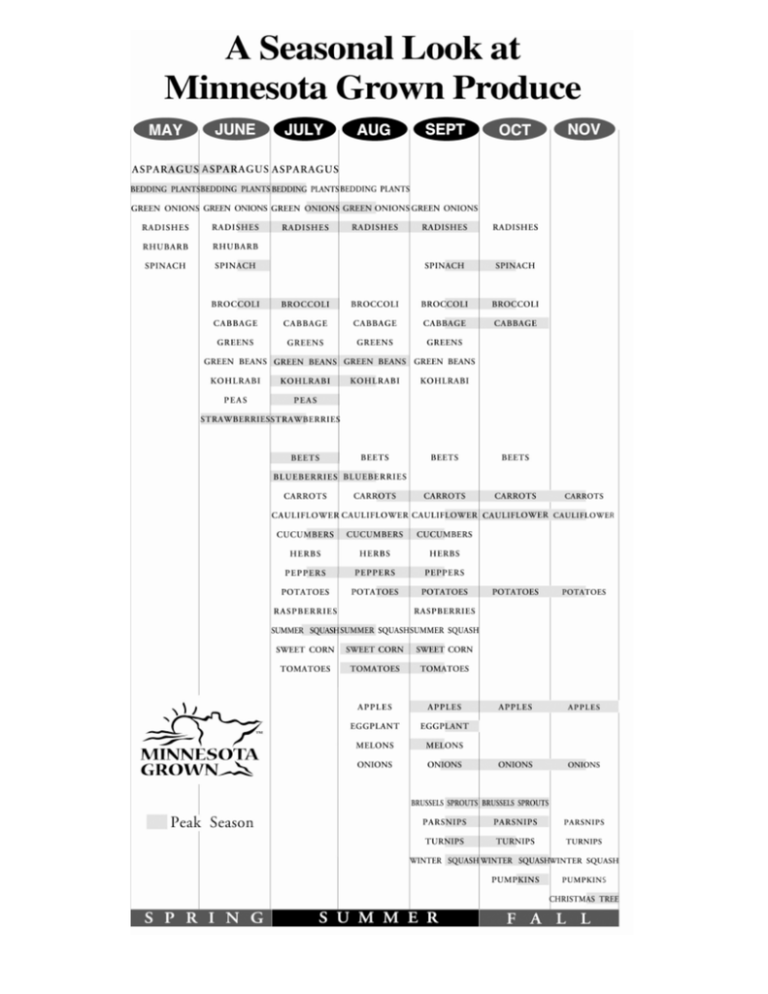
8 Why buy seasonal produce? Produce will taste its best when in season and is usually cheaper than in the off season. Below are some tips on washing, storing and picking out some common vegetables and fruits. Remember all produce should be washed thoroughly with water, even the pre-washed lettuce! This includes citrus fruit if you’re slicing it, instead of hand peeling: contaminants will follow your knife. Potatoes and other peeled items should be washed too: contaminants will follow your veggie peeler. A good tip for keeping your produce easy to use and fresh longer: wash it all when you get home and DRY very well (salad spinners are a savvy investment, for those tough greens). Your produce will be ready to eat or prepare when you are! Look for more tips, found with recipes throughout the book. Spring Asparagus: bright green and firm, store in refrigerator in plastic or brown paper bag Avocado: slightly soft when squeezed, use immediately. Will ripen uncut if firm, store at room temperature Broccoli: Green, no discoloration, should smell sweet, not cabbage-like. Refrigerate in open plastic bag. Peas: Pods filled out, but not bursting. Store in open plastic bag in refrigerator Radishes: Smooth, firm. Smaller ones are less spicy, refrigerate in open plastic bag Spinach: Bright green leaves, refrigerate washed with a paper towel in plastic bag Rhubarb: Crisp stalks in pink, green or speckled. Remove leaves, store refrigerated 9 Summer Berries: Smell them, they should smell good! Check for mold. Store in refrigerator on a paper towel, open air. Wash just before eating. Beets: Leaves and stalks unwilted, use right away before sugars turn to starch. Refrigerate in open plastic bag. Carrots: Unwilted greens, bright deep orange color, crisp. Store in plastic bag after removing tops. Cauliflower: Uniform creamy white color, tight florets. Refrigerate in plastic bag Cucumbers: Skin firm, not shriveled. Crisp feel/look. Store refrigerated, away from tomatoes and apples. Eggplant: Firm, shiny, without blemishes. Smaller are sweeter. Use soon after buying. Store chilled. Green Beans: Crisp and bright. Use quickly because they don’t last! Store refrigerated. Peppers: Firm, smooth/glossy skin. Can keep at room temperature or refrigerate in open plastic bag. Sweet corn: Green, fresh looking leaves, silks golden. Full plump kernels that exude milky liquid when broken. Summer Squashes (including Zucchini): Firm and mostly free of any blemishes. Store at room temperature or refrigerated. Tomatoes: Smell good, firm with bright color. Never refrigerate. Peaches: Should have slight give with pressure, few blemishes. Will ripen in a brown bag at room temperature. Store at room temperature. 10 Watermelon: Look for a yellow under side, not white and dried stem. Can store at room temperature uncut, refrigerate cut pieces in covered container. Fall/Winter Apples: Firm and unblemished. Room temperature or refrigerate. Potatoes: Smooth skin, no soft spots or discoloration. Store in cool dry place. Acorn Squash: Dull, dark green rind, no soft spots. Store for 1-2 months in a cool dry place. Pumpkins: Free of blemishes, tough rind that can’t be scraped with your nail. Under 6 pounds, if you plan to eat it! Turnips: Look for smaller ones, use unpeeled or larger ones, use peeled, stronger flavor. Greens shouldn’t be wilting. Store at room temperature. Citrus: Feels heavy for size. Color is not always a good indicator. Store room temperature or refrigerator. Greens: Look for dark green leaves. Avoid yellowing or limp ones. Store chilled, use soon after buying as flavor gets stronger as is gets older. Garlic: Firm, closed heads with no shoots. Cured- Store in a cool dry place. Fresh- refrigerate in plastic bag, use soon after buying. Sources: Minnesota Department of Agriculture Online: http://www.mda.state.mn.us/ The Food Network Online: www.food network.com The Ulloms Website www.theulloms.com/myrecipes/how_to_pick_out_produce.htm 11
